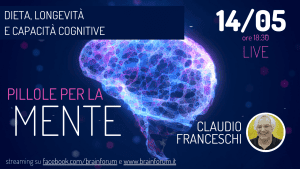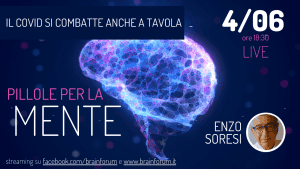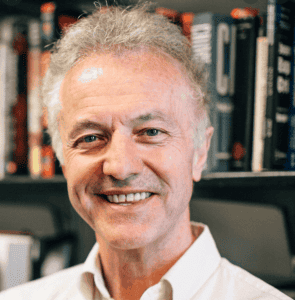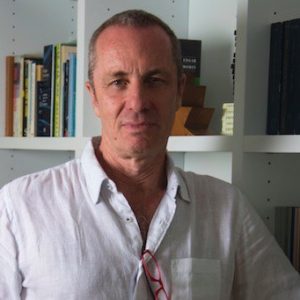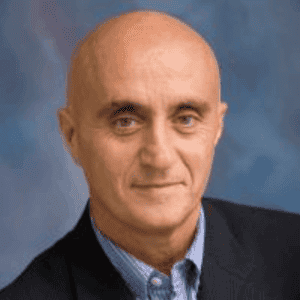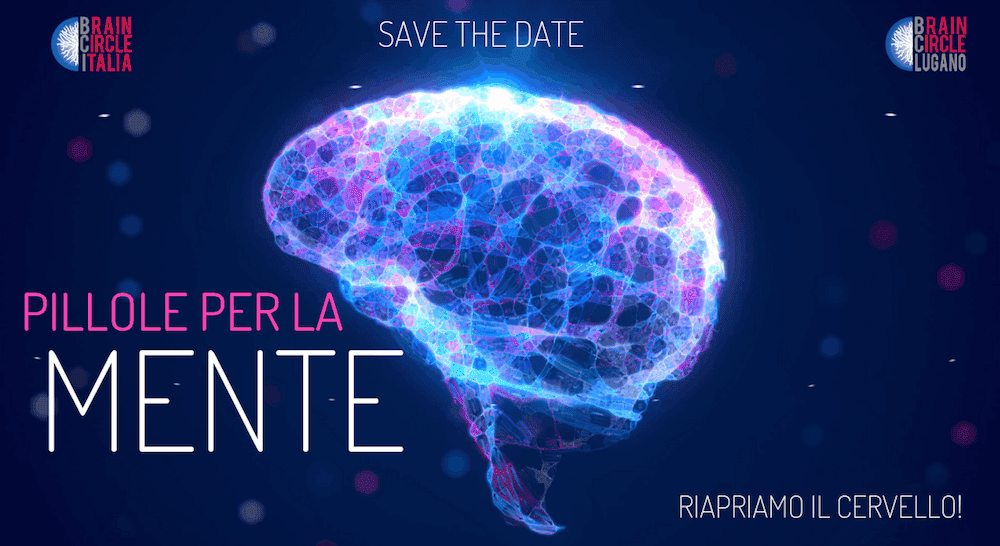
Eight meetings to talk about how nutrition affects the brain
From May 11th to June 4th every Monday and Thursday at 6.30pm
Live on YouTube and on our Facebook page, where it is also possible to participate with comments and questions.
Let’s reopen our minds. Let’s turn our brains back on
After two months of lockdown, BrainCircle also reopens its doors, with a series of conferences via Web. Eight half-hour appointments with eminent international scientists whose theme is the influence of nutrition on brain development, cognitive abilities and well-being psychological, on the immune defenses, which are strongly influenced by the psychophysical balance.
“In recent months, the relationship with food has received particular attention in our lives” explains Viviana Kasam, president of BrainCircle Italia, who created the meetings in collaboration with the Lugano journalist Clara Caverzasio, president of the Scientific Committee of BrainCircle Lugano. “Forced at home by confinement and with only grocery stores open, we found ourselves focusing our attention on gastronomy and meals. With positive, but also negative effects: cases of obesity, especially in children, but also in adults and the elderly, have increased, also due to a lack of physical exercise.”
The meetings will examine some non-obvious aspects of nutrition and, thanks to the unconditional support of Lundbeck Italia, they will be available via live streaming and, as always, it will be possible for the public to ask questions and talk to the guests.
On the calendar
Monday 11 May, 6.30 pm
with Telmo Pievani (philosopher of science, evolutionist, University of Padua)
Do we think what we eat? The role of food in evolution
The Homo genus has developed an intense relationship with food, which has evolved a lot over time: from the role of meat, to cooking, to tubers, to the selection of plants already in Neanderthals. A story that allows us to disprove the “paleo diet” hoax.
Thursday 14 May, 6.30 pm
with Claudio Franceschi (immunologist, professor emeritus at the University of Bologna)
Diet, longevity and cognitive abilities
What are the secrets to healthy aging? The professor will talk about it. Franceschi, an undisputed authority for his studies on centenarians and on the relationship between diet and the immune system.
Monday 18 May, 6.30 pm
with Florian Bihl (gastroenterologist, University of Geneva, Head of EOC Hepatology Service, Italian Switzerland)
The second brain: the intestine
Our body has two brains: the best-known one, inside the skull, and the intestine, which contains around 100 million neurons, connected with brain neurons. It is one of the reasons why stress, fear and emotions affect the digestive system. Billions of billions of bacteria live in the intestine and make up the microbiota, which has repercussions on the activity and well-being of the brain.
Thursday 21 May, 6.30 pm
with Raffaella Rumiati (professor of cognitive neuroscience, SISSA, Trieste)
The gourmet brain, or the omnivore’s dilemma
How does the brain develop a propensity towards one food rather than another? What does the preference for sweet or savory, the rejection of meat or fish, the choice to be vegetarian or vegan depend on? And how are eating dysfunctions, the refusal to eat in anorexia or bulimia conditioned by the brain?
Monday 25 May, 6.30 pm
with Adrian Raine (criminologist, psychiatrist University of Pennsylvania)
Preventing and treating aggression with food
Can an incorrect diet during pregnancy and the early stages of life contribute to the development of an aggressive personality? Is it possible, through diet, to help children contain violent behavior?
Thursday 28 May, 6.30 pm
with Paolo Sassone-Corsi (biologist, University of Irvine)
Brain and diet: not only what, but also when
Circadian rhythms are linked to light cycles and individual psychosomatic characteristics. Today, epigenetics is interested in this cutting-edge topic, a discipline that studies how the genetic makeup develops over the course of life in relation to the environment, habits, stress and also nutrition.
Monday 1 June, 6.30 pm
with Massimiliano Sassoli de’ Bianchi (Vrije Universiteit Brussel and Basic Self-Research Laboratory, Lugano)
Fasting, health and awareness
The absence or deprivation of food, fasting, is a practice that affects both the body and the mind, and has a long tradition in all cultures on the planet, for example in rituals connected to prayer and meditation. There are different fasting practices, capable of influencing not only our physiology but also our cognitive processes.
Thursday 4 June, 6.30 pm
with Enzo Soresi (pathologist, pulmonologist and oncologist, Chief Emeritus at Ca’ Granda, Milan Niguarda)
Covid can also be fought at the table
Enzo Soresi survived a severe form of Covid and believes he achieved victory against the virus thanks to his diet, which allowed him to cross the milestone of 80 years in excellent shape.

